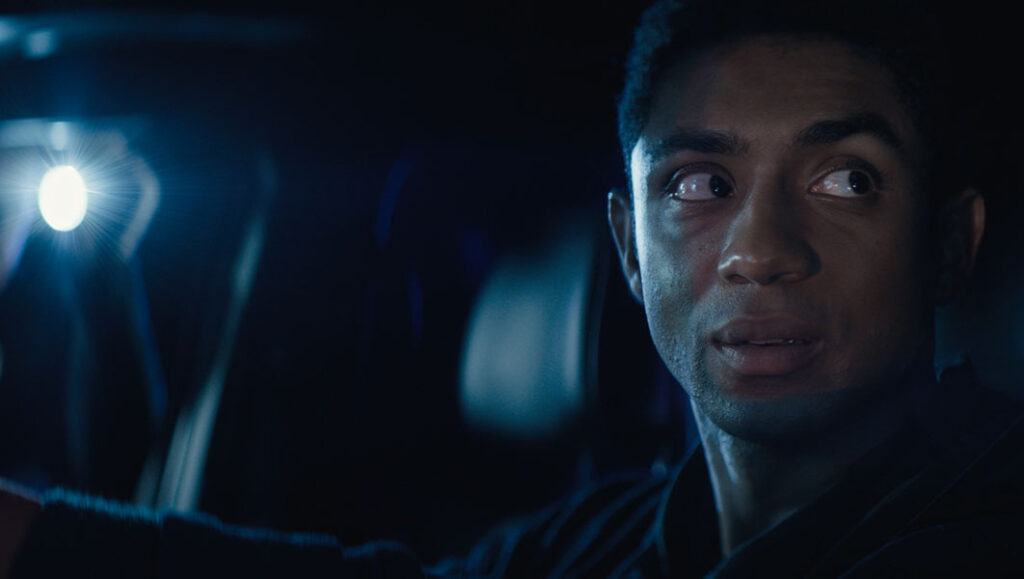The Obituary of Tunde Johnson squanders its opportunity to use a time-loop gimmick to meaningfully engage with bigger ideas.
Early in The Obituary of Tunde Johnson, the title character quotes film critic Arlene Croce on The 400 Blows: “You are no longer looking at the film — the film is looking at you.” Debut director Ali LeRoi certainly aspires to such heights, but his film’s messaging is severely bogged down by an over-reliance on narrative intricacies and head swivel-inducing character recalibrations. Part of this is by design: the film is only the latest in a renaissance of Groundhog Day-inspired die-repeat narratives, and on the surface, the story of a young Black man’s repeated murder at the hands of the police has the potential to be a powerful application of that treatment. The opportunity to investigate the inevitability of contemporary violence precipitated against Black men in America, and in the variety of ways that this gimmick allows for, affords clear avenues of either incendiary satire or a more inflammatory realist treatment, and many of the images conjured reinforce a sense of provocation. The most memorable finds Tunde, who is innocent of any crime, being choked out by a cop, the camera cutting to a sidewalk-level close-up of his face as he struggles, gives up, and struggles more — all while the red and blue lights of the law flash across his face.
Such content demands an appropriate wielding of its righteous anger, however, and LeRoi unfortunately expends far too energy resolving a love triangle that’s integral to the plot but entirely superfluous to the film’s more substantive concerns. This results in an exercise in having and eating one’s cake, with predictably mixed results. Refreshing is the film’s willingness to break formula, to develop increasingly dissimilar scenarios — rather than just the slight right turns that this subgenre has conditioned viewers to expect — and to play loose with structure. Less palatable are the jarring shifts in the title character’s perspective, from one reincarnation to the next: any semblance of internal logic is abandoned in favor of desired emotional beats, and even those are mostly blunted by the seemingly arbitrary nature of each new development. This is the main disruption of The Obituary of Tunde Johnson — while similar films in the loop cinema subgenre are built on character evolutions that are evidenced by the conceit, Tunde’s journey toward self-acceptance (he struggles with being gay) has little to do with the manner of his death. It’s not so much that the film trivializes its rhetoric, but rather that it uses its iconography as red herring: the only takeaway here is that the decision between dignity and survival doesn’t apply to the white and wealthy, and little else is examined with any depth. It turns out, the reset button, as a frisky filmic gambit, doesn’t really work when the only lesson to be learned is that to be a Black man in America is innately perilous.
Originally published as part of Toronto International Film Festival 2019 | Dispatch 3.
Published as part of Nightstream 2020 — Dispatch 1.


Comments are closed.